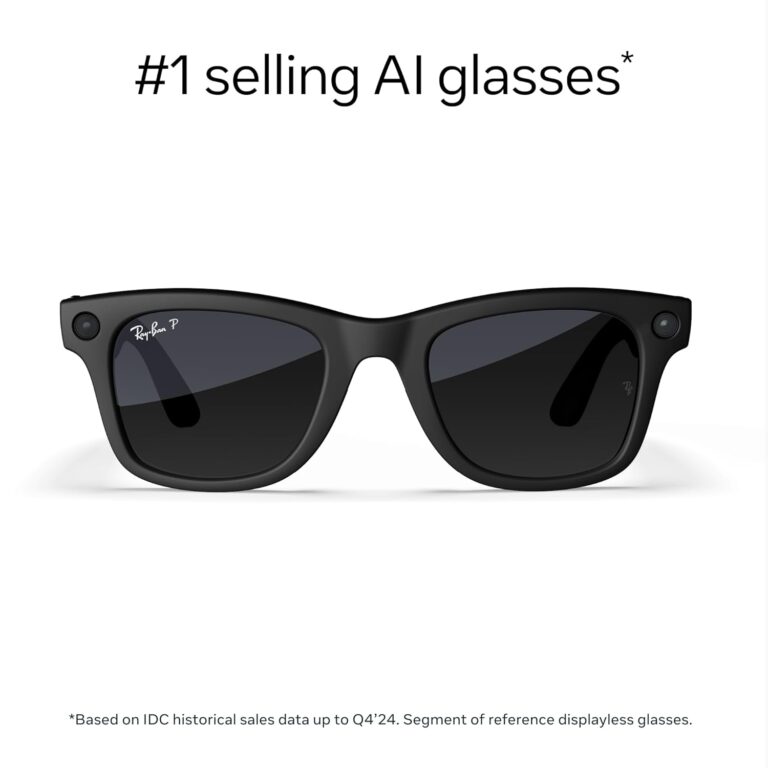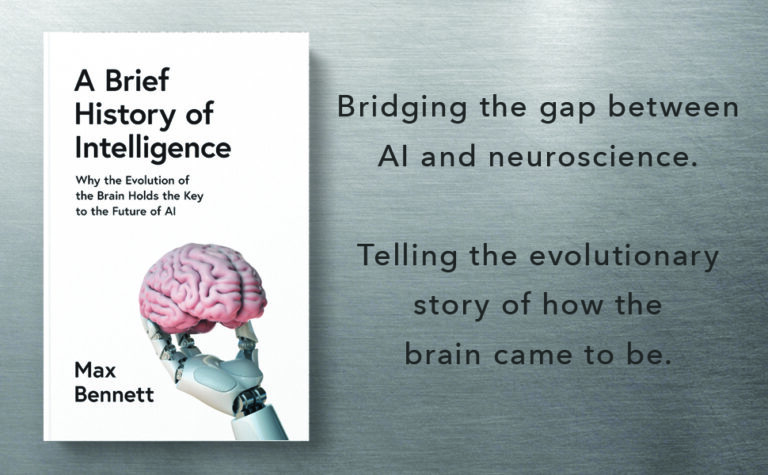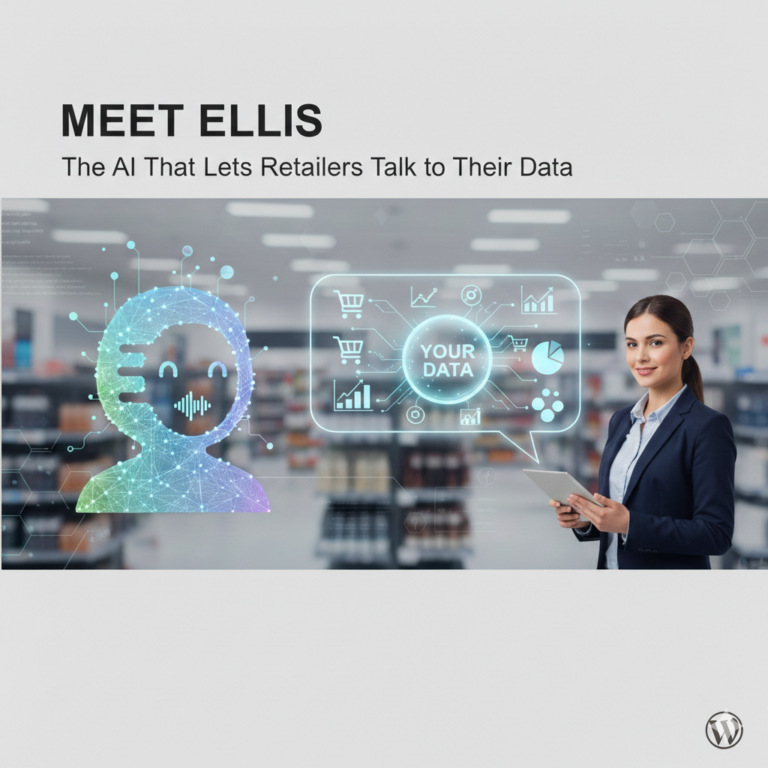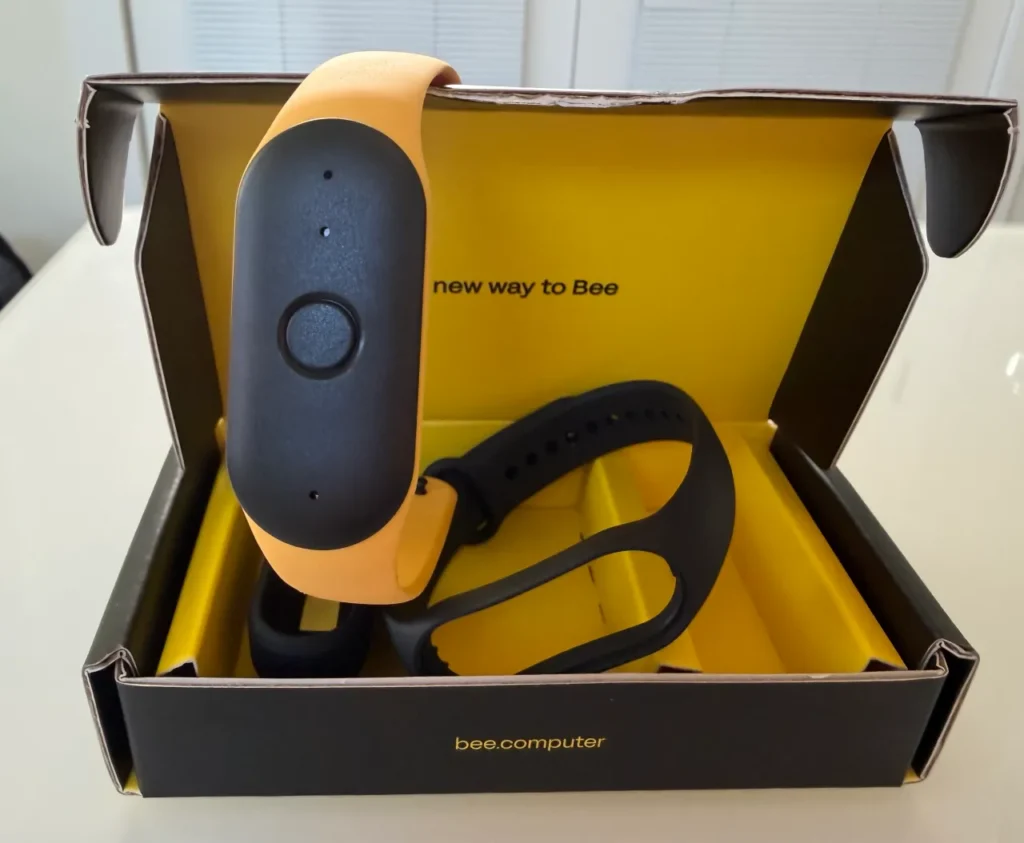Bee is Amazon’s AI-powered wearable that can record, transcribe, and summarize your conversations. Think of it as a smart assistant that sits with you throughout the day, helping you capture important moments and even turn them into tasks or reminders.
Getting Started with Bee
Using Bee is simple. Press the button once to start recording and again to stop. In the app, you can set a double press to bookmark part of a conversation, process it, or do both. Hold the button, and you can leave a voice note or chat with the AI assistant. The app even reminds you to turn on voice notes.
How Bee Handles Conversations
Bee works like other AI tools that listen and transcribe, but it adds its own twist. Instead of giving you a long raw transcript, it breaks the conversation into sections and summarizes each one.
For example, an interview might be split into the introduction, product details, industry trends, and other topics. Each section is color-coded, making it easy to scroll through. Tap any section, and you can read the full transcription.

Image source: Bee
Speaker Labels and Limitations
There are a few limits. You can mark if a segment is you speaking, but you cannot fully label each speaker like professional transcription tools. Also, Bee deletes the audio after transcription, so you cannot replay it to check for mistakes.
Beyond Work Use
Bee is not just for work. Amazon designed it to be a companion in daily life. It integrates with Google services, so conversations can turn into tasks. For example, after meeting someone at a conference, Bee might suggest connecting with them on LinkedIn or researching their product.
You can leave voice notes instead of typing them. The app stores past conversations as “memories,” offers insights in the “Grow” section, and lets you add or confirm personal facts about yourself. Amazon plans to release more features over time.

Image source: Bee
Privacy and Safety
Bee is not always listening. You are expected to ask before recording someone unless it’s a public event. A green light lets everyone know the device is recording.
The sports band can be a bit flimsy. It fell off twice while I was just sitting in a taxi. The clip-on pin feels stronger and more secure.
Is Bee Really Needed?
The app is easy to use and well-designed. But do we need a device just to record conversations? Outside meetings or interviews, it’s unclear how useful this is in daily life.

Image source: Bee
Social norms also matter. Recording people without permission could feel awkward. At CES, a Soundcore rep joked, “Say that louder into my mic,” pointing to an AI recorder pinned to their shirt. It was a strange moment realizing anything you say could be recorded.
The Big Question
Ultimately, Bee’s success depends on whether people actually want a device like this in everyday life. For now, it feels more like an interesting experiment than a must-have gadget.









